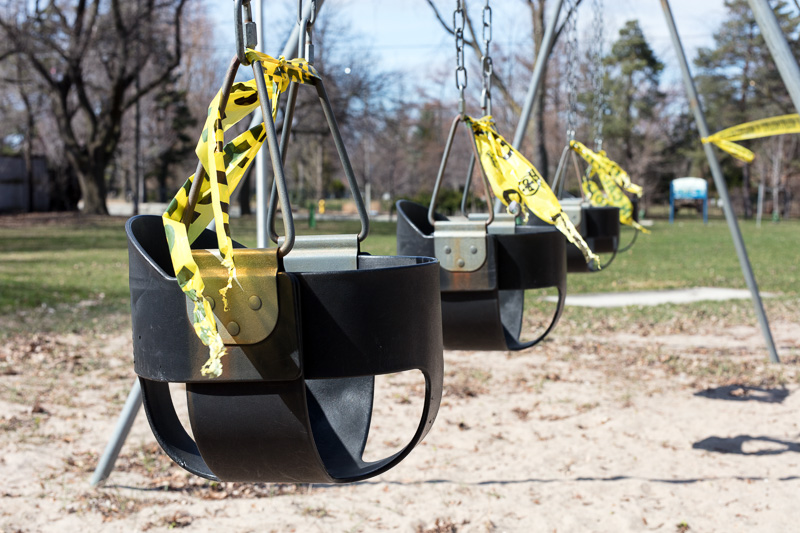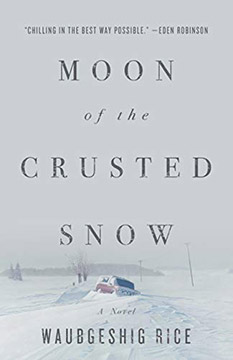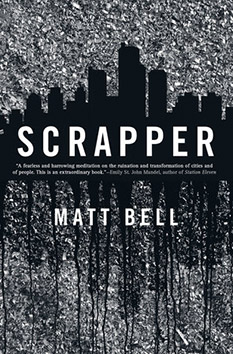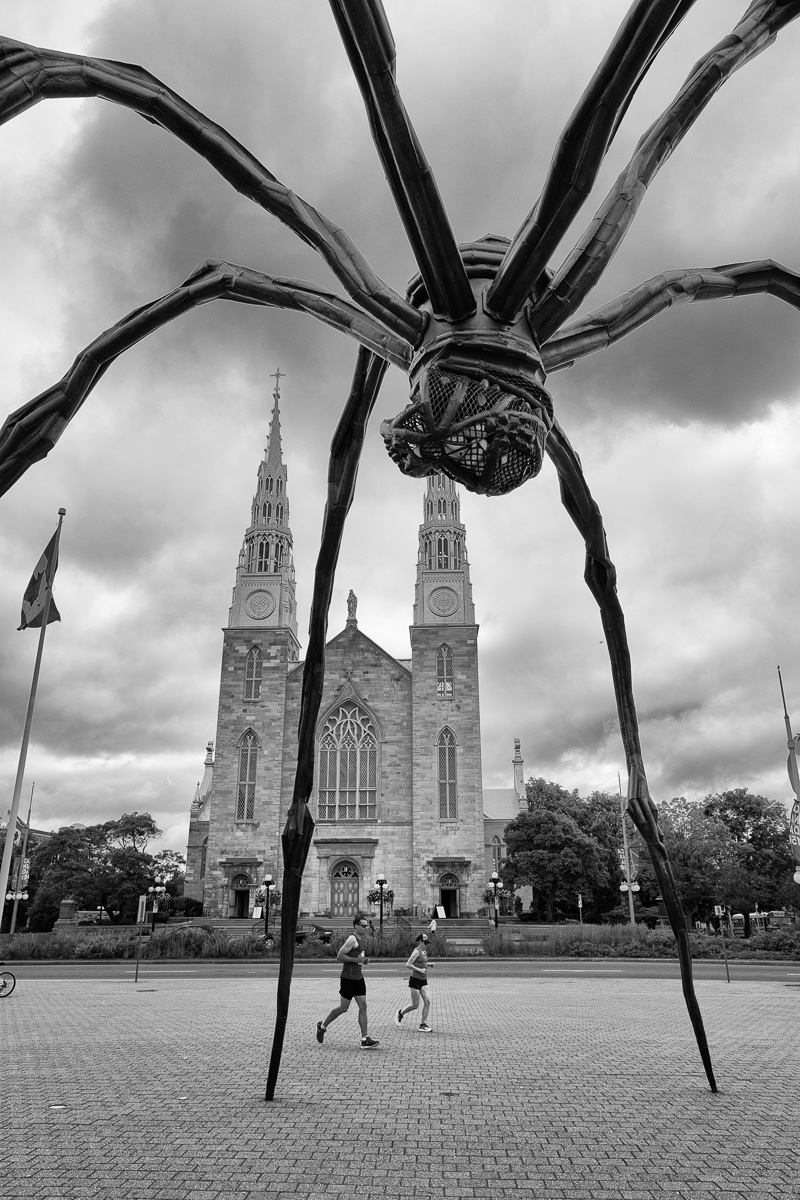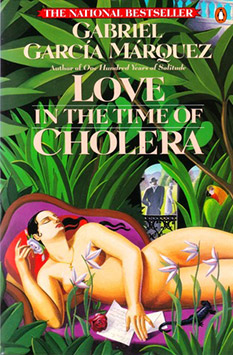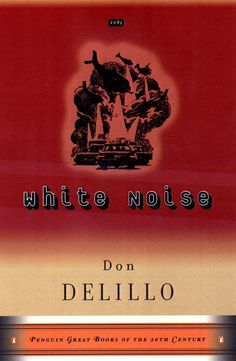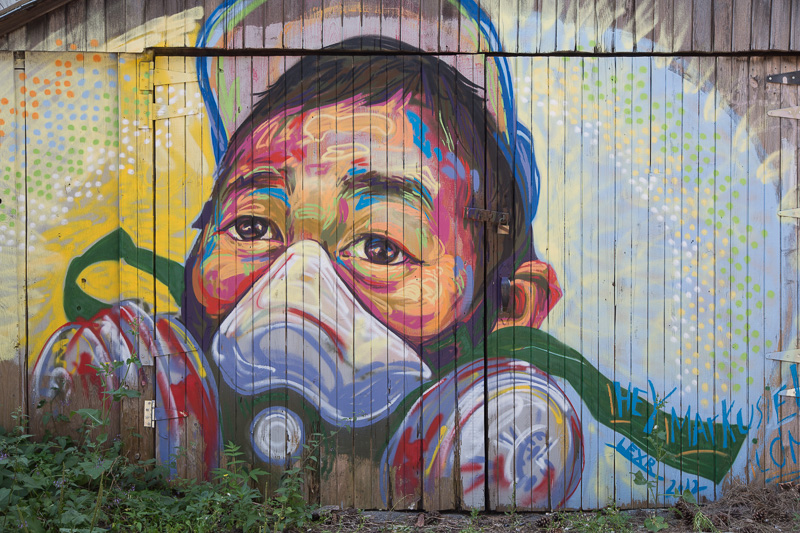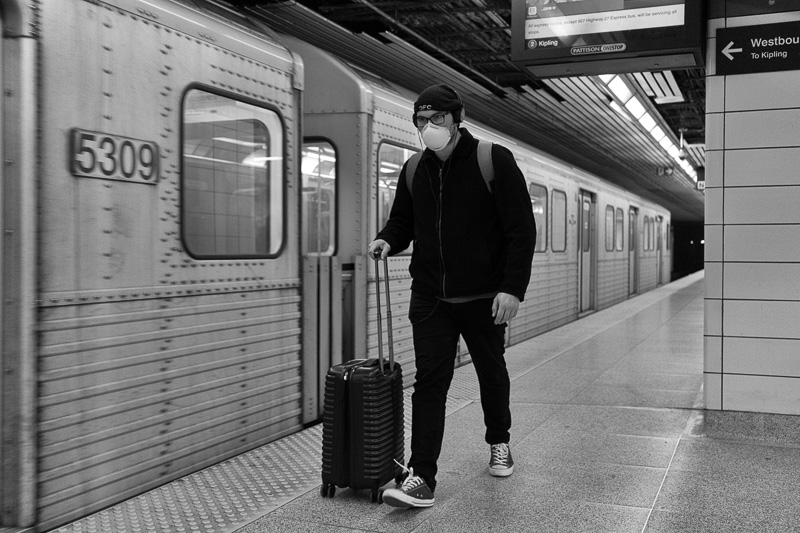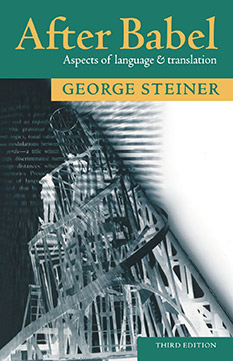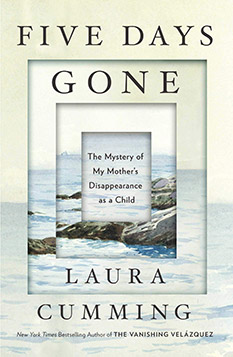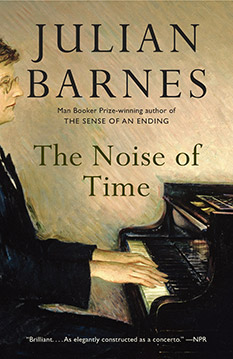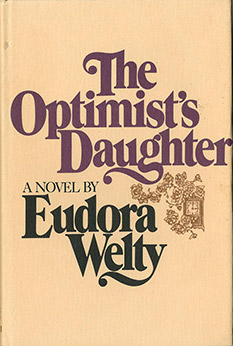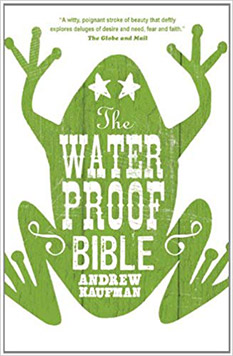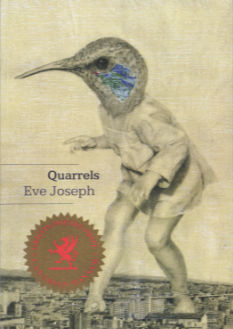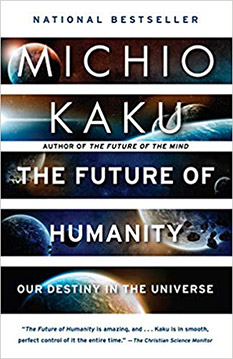I wonder how we will return to normal. Will we allow our children to play freely? Or will we regulate public play? Maybe the state won’t need to regulate childhood interactions. Maybe it will be enough for anxious parents to hover on the edges of our playgrounds.
Tag: Books
Moon of the Crusted Snow, by Waubgeshig Rice
Moon of the Crusted Snow, by Waubgeshig Rice (ECW press) came to my attention with the life-imitates-art story on the CBC of a Quebec couple who drove to Whitehorse then flew from there to Old Crow, the Yukon’s northernmost community.
Scrapper, by Matt Bell
This time, what renders the novel dystopian is that it “imagines” America—or at least the heart of Detroit—as a post-industrial wasteland. I put the word “imagines” in quotation marks because, at this point in time, Matt Bell could write reportage instead of fiction and end up with the same book.
The War of the Worlds – Alien Invasion in the Age of Covid-19
Although The War of the Worlds, by H. G. Wells, concerns an alien invasion by Martians, it is nevertheless relevant in the context of a pandemic. Microscopic pathogens figure in the plot.
Love in the Time of Covid-19
In the human imagination, a disease is never just a disease, a plague is never just a plague. Humans cannot help but ascribe meanings that lie far beyond the medical descriptions of these events.
White Noise, by Don DeLillo
When power seeks to exploit disaster, we look to the arts for our prophetic voices, those who will ground authority by exposing folly and drawing us back to the centre. In White Noise, DeLillo does this through satire.
George Orwell and Graffiti
Near the end of Homage to Catalonia, George Orwell’s memoir of his service in the Spanish Civil War, Orwell confesses that he was not above resorting to graffiti.
The Plague, by Albert Camus
To amuse myself during this period of Covid-19 isolation, I have started to work through a reading list of plague-based writings starting with Albert Camus’ 1947 novel, The Plague (La Peste).
After Babel, the photograph?
The following commentary considers After Babel: Aspects of Language and Translation, by George Steiner and asks whether it has anything to say about non-verbal forms of communication, most notably photography.
Five Days Gone, by Laura Cumming
Five Days Gone: The Mystery of My Mother’s Disappearance as a Child, by Laura Cumming When Elizabeth Cumming was 60 years old, she discovered that, as a young child, she had been kidnapped. In 1929, when she was only three years old, someone had lured her from the beach at Chapel St. Leonards, the Lincolnshire…
The Noise of Time, by Julian Barnes
In this fictional account of a historical figure, Julian Barnes imagines how Shostakovich survived in Stalinist Russia. Barnes makes much of irony as a survival strategy, an ontological stance, a means of shielding one’s self from the solar glare of true belief.
Blindness in Eudora Welty’s The Optimist’s Daughter
I am determined to read all the novels and short stories of Eudora Welty, starting with The Optimist’s Daughter, for the simple reason that she is that rare bird: a novelist who is also a photographer.
The Waterproof Bible, by Andrew Kaufman
I bought a copy of The Waterproof Bible this summer in a Haliburton book store called Master’s Book Store. Naive person that I am, it never crossed my mind that the Master refers to Jesus and the book store is a Christian book store.
Diane Arbus in Quarrels by Eve Joseph
Joseph hints at a gentler way of describing Arbus’s practice and, by extension, Joseph’s broadest poetic intention. She asks: “How do we talk to one another from the sanctuary of our own solitudes?”
The Future of Humanity, by Michio Kaku
In tone and general outlook, Kaku’s book reminds me of I. M. Levitt’s 1956 book, A Space Traveller’s Guide To Mars. Although published more than 60 years apart, the books share a sentiment of optimism, an absolute faith in technology’s capacity to overcome all obstacles, and a penchant for the speculative.
